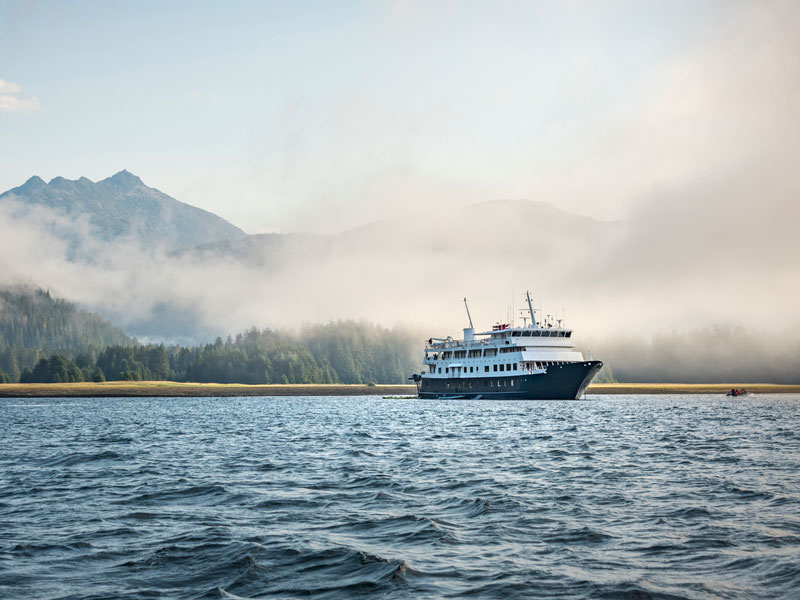
The British Columbia port cities of Vancouver and Victoria once enjoyed a highly lucrative cruise ship industry that generated more than $2.5 billion annually.
This revenue came thanks, in part, to a long-standing U.S. law that prevents foreign-built ships from moving passengers between U.S. ports. Because of the Passenger Vessel Services Act (PVSA) of 1886, foreign-built ships (which today is basically all of them) carrying more than 1,000 passengers and sailing from the U.S. mainland to Alaska must first stop in a foreign port — for example, one in B.C.
Then, two things happened.
First, in early 2020, the global Covid-19 pandemic struck; second, B.C. Premier John Horgan put his foot in his mouth.
The latter occurred soon after the B.C. and Canadian governments closed our ports in February 2021 for one year to visiting Alaska-bound cruise ships — and to the huge number of passengers who spent their dollars in Canada.
Because of the PVSA, the closure also wiped out the 2021 Alaska cruise season and much of that northern state’s tourism sector.
According to the office of Republican U.S. Senator Lisa Murkowski of Alaska, that state hosted more than 1.3 million visitors via cruise ships that had also stopped in Vancouver or Victoria in 2019. But, as a result of the closure, Skagway, Alaska, for example, saw its annual business revenue drop by 80%.
“The inability of cruises to travel to Alaska nearly wiped out our economies in communities like Skagway,” Murkowski said.
As you’d expect, Alaskan politicians raised the alarm in correspondence with both Horgan and Prime Minister Justin Trudeau, and even suggested a workaround solution that would temporarily allow the ships to make what they termed “technical stops” in B.C. ports without loading or unloading passengers.
However, both the B.C. and Canadian governments dismissed these concerns, so Murkowski and other Alaskan legislators responded with legislation that temporarily exempted Alaska-bound cruise ships from having to stop at foreign ports.
Horgan was still dismissive, calling the chances of this new legislation passing “remote.”
It passed.
To make matters worse, senators and representatives in the U.S. realized the old PVSA legislation was really serving only Canada’s interests. The act was passed to prevent foreign-built ships from carrying passengers between two U.S. ports. But since there hasn’t been a cruise ship built in the U.S. for many years, why not make Alaska’s exemption permanent?
That’s exactly what is happening.
In June, Utah Republican Senator Mike Lee introduced legislation to permanently ban the PVSA, arguing it’s “blatantly ‘Canada first.’” Other American legislators noted the act is the main reason why B.C.’s cruise sector exists. Then, following the unsatisfactory replies from B.C. and Canada, a clearly frustrated Murkowski introduced the Cruising for Alaska’s Workforce Act in September.
Now, our governments are behind the eight ball. If the new U.S. legislation passes, it will permanently exempt Alaska-bound ships with 1,000-plus passengers from needing to stop in B.C. ports. Some ships still may stop, but many more may not.
Clearly, our politicians have not taken Alaskan concerns regarding cruise ship stoppages seriously enough. And even though Canada moved up its port reopenings to Nov. 1, 2021, from Feb. 28, 2022, the issue may already be beyond our control. Ultimately, B.C. and Canada may end up looking like the captain and first mate aboard the Ship of Fools.
Advisor chargebacks are bad for the industry
The CSA is considering a ban on the practice